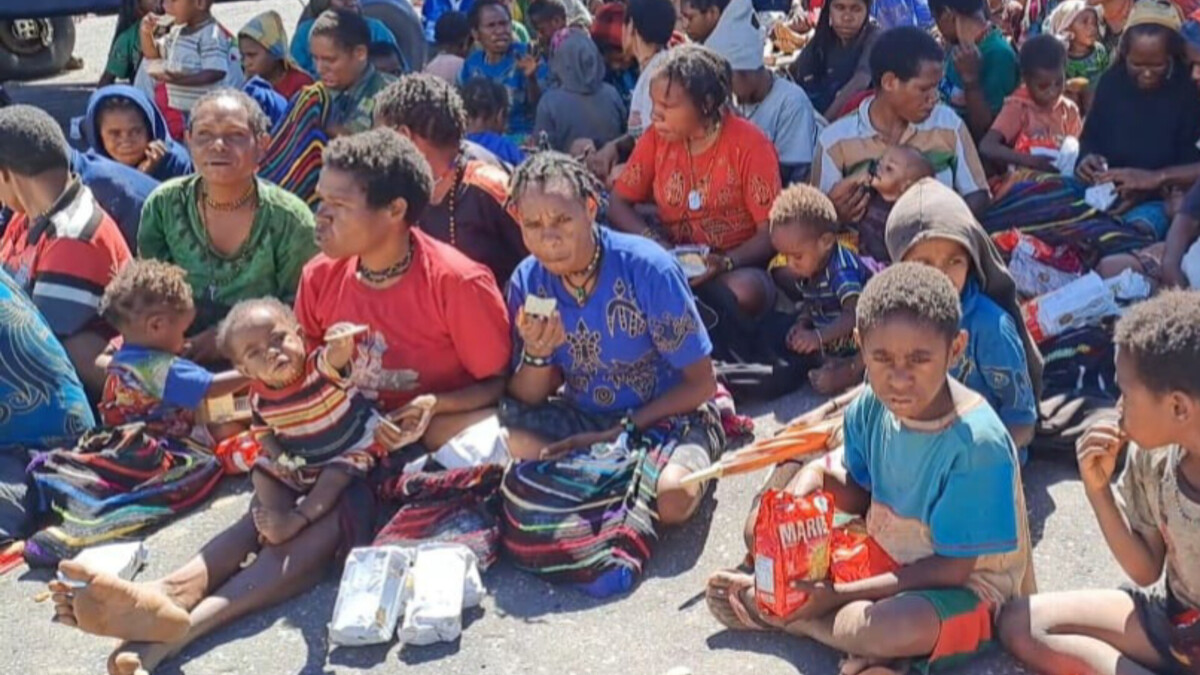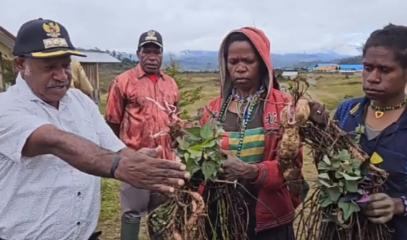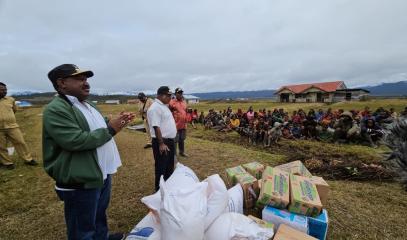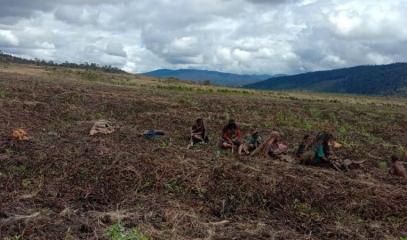Indonesia airlifting aid to hunger-affected Papua
This year’s dry season was particularly intense and drought affected crops, authorities report. Six people have died since June. In the past 20 years, drought has struck six times. Experts warn that poor administration has exacerbated the situation in a province where separatist groups still demand independence from Indonesia.
Jayapura (AsiaNews) – Thousands of residents in Indonesia’s Papua province are suffering from hunger due to prolonged drought, to the point that the central government recently proposed airlifting aid to hard-to-reach places, in an area where armed separatist groups operate.
Six people have died in Puncak Regency since June, in the central part of Papua province which, along with West Papua province, occupies half of the island of New Guinea.
The area has always been prone to drought at this time of year, but climate change has exacerbated pre-existing conditions, observers note.
This year, snow (Puncak is near Indonesia's highest mountain), which often cause crops to rot, was followed by a prolonged dry season that affected crops and compromised the residents’ food security, particularly in Kuyawage, Lanny Jaya district.
Experts note, however, that "human error" also has to be considered. "Despite huge funds from Jakarta to local governments in Papua, only a short-term project has been carried out to address hunger," said Armand Suparman, head of the Executive Committee for Monitoring Regional Autonomy, in the provincial capital Jayapura.
Papua province enjoys a special autonomous status, but this has not ended a separatist movement led by indigenous Papuans. The latter can be found on both sides of the border that divides the island.
Despite being one of the country’s richest regions in terms of natural resources, it is also one of the poorest and underdeveloped. The climate crisis has only compounded poor administration.
Avelinus Lefaan, a sociologist at the University of Cendrawasih, agrees. In his view, local farmers in mountain areas have not been "well informed" about modern agricultural technologies and the necessary steps to take in case of extreme weather events, even though village life depends totally on farming.
"Local farmers have not yet been trained on how to store food so that they can have enough in case of unfavourable weather conditions," Lefaan said.
Hunger has affected the local population at least six times in the past two decades: in 2003, 2005, 2015, 2022 and 2023. And this year, Indonesia's meteorological agency has predicted a likely increase in forest fires.
Indonesia's disaster mitigation agency (BNPB) said that the authorities will send food, like milk, and other aid to the region, noting that Puncak residents are affected by drought every year, "but this year is more extreme.”










.png)










